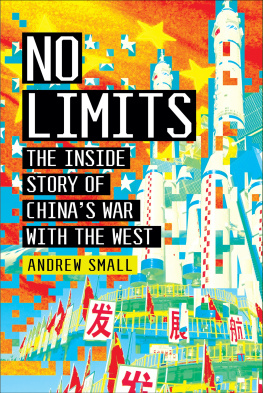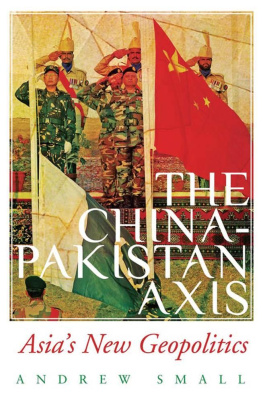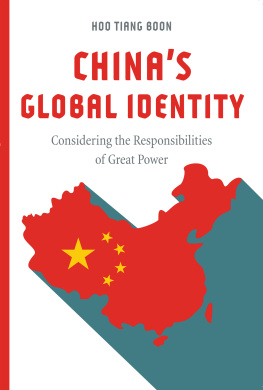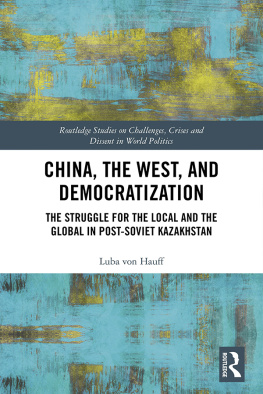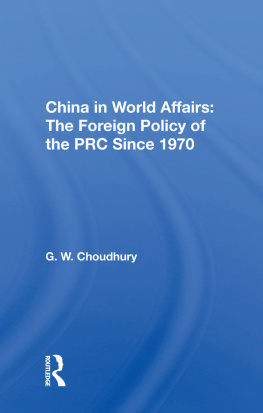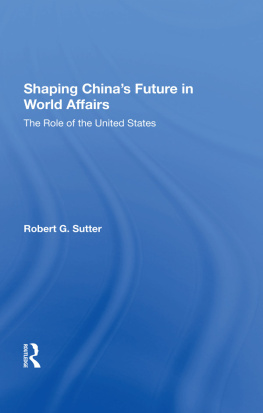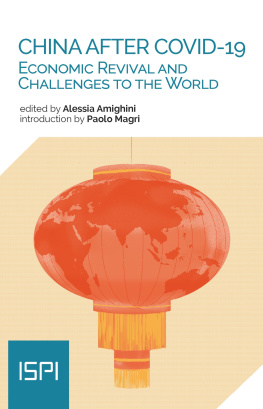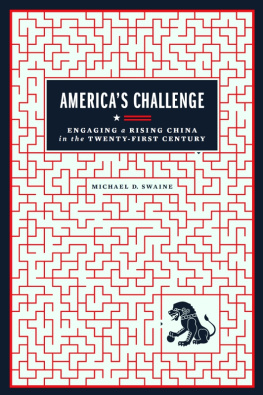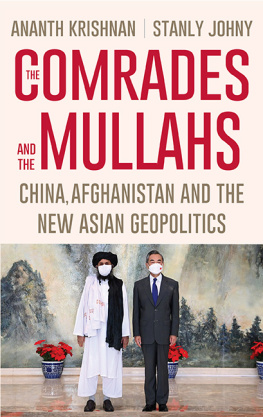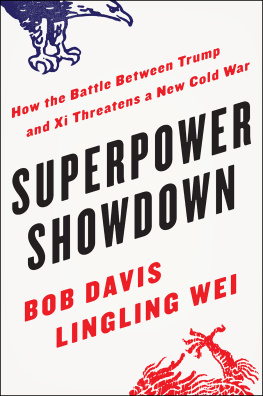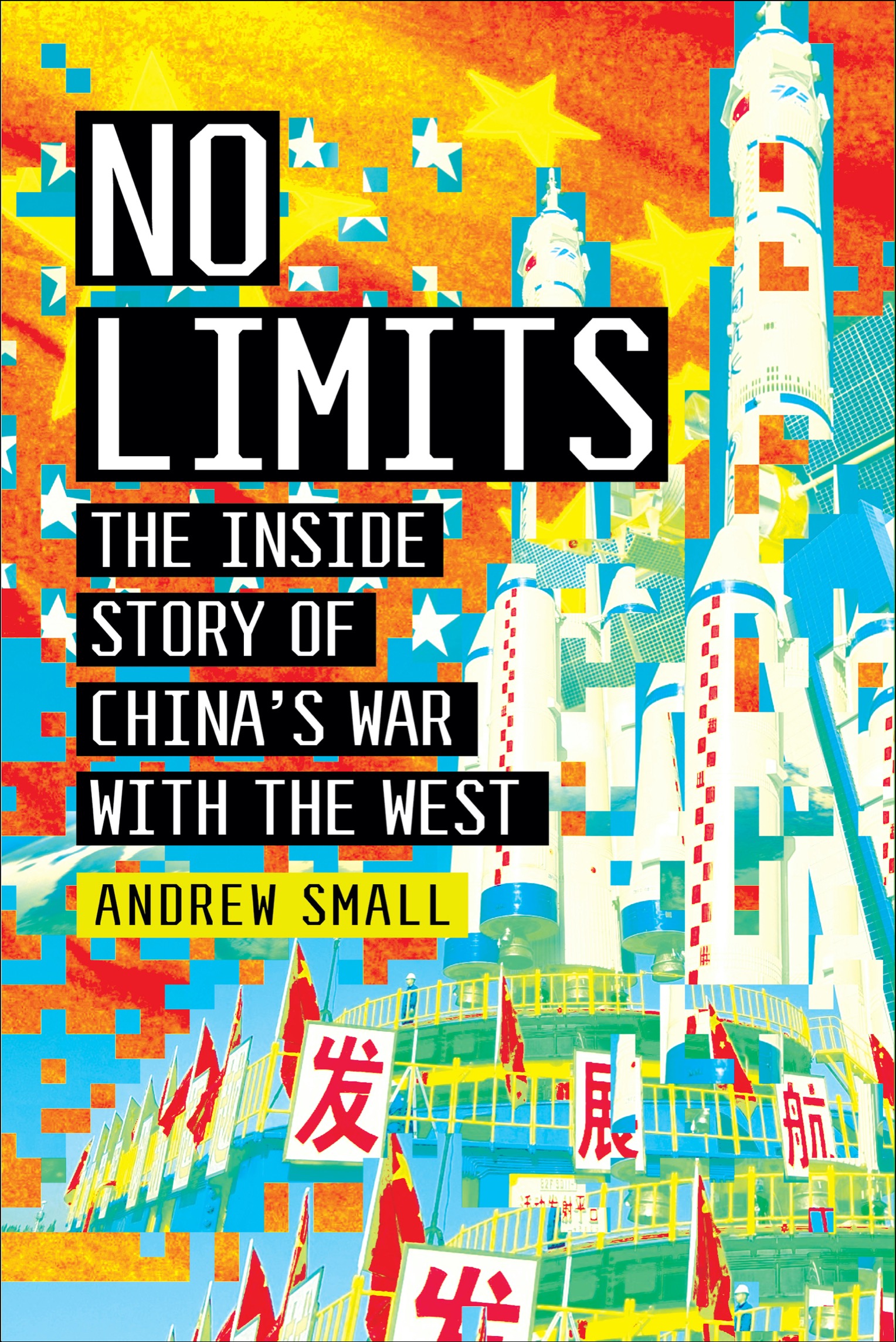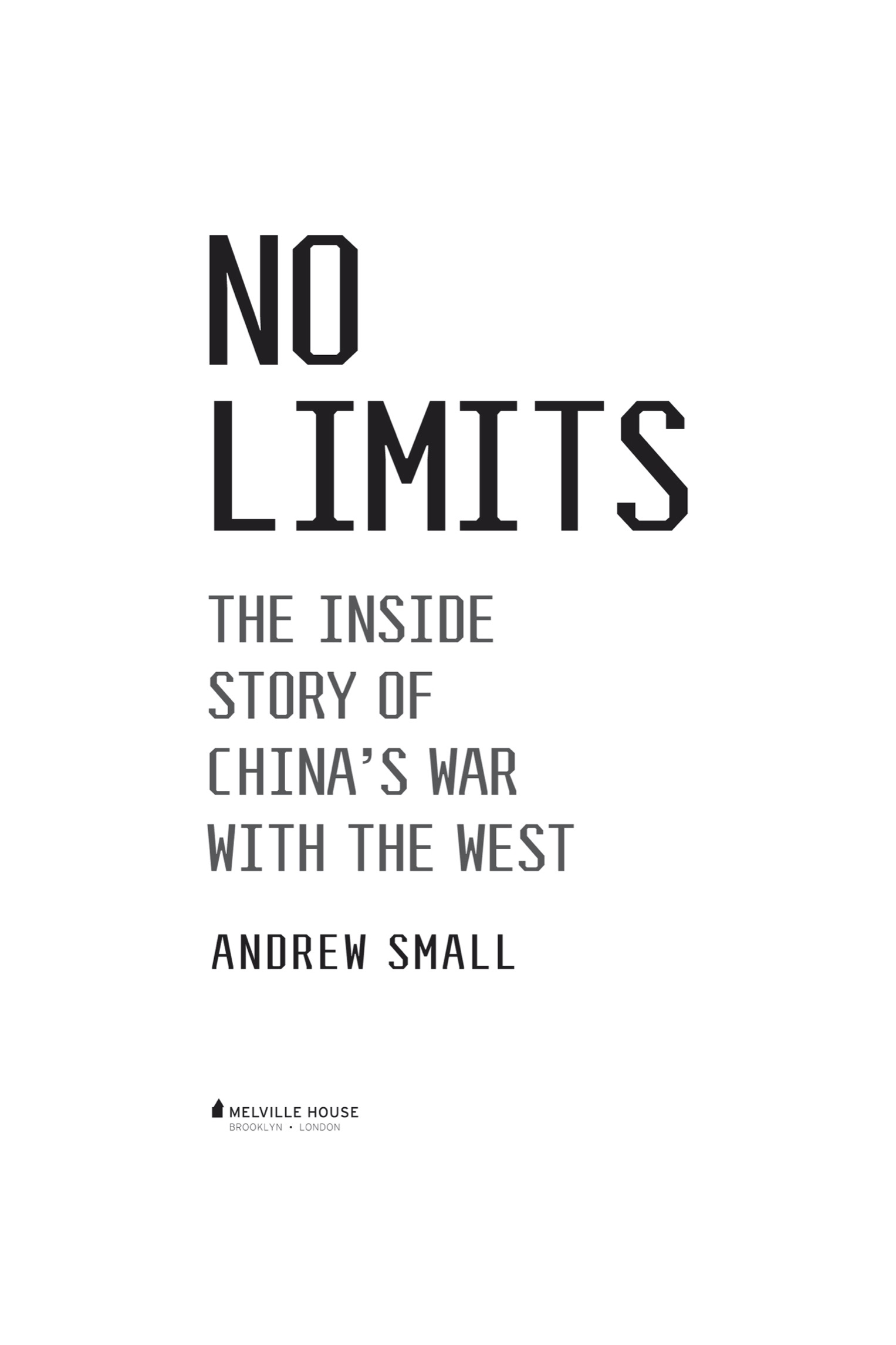C. Hurst & Co. (Publishers) Ltd.
ACKNOWLEDGEMENTS
This book could not have been written without the help of a great number of colleagues, friends, supporters, and sources. While the primary phase of research, and all of the writing, was conducted from 2019 on, the book draws on meetings and interviews that go back to 2003, as well as my wider experiences in China since 1998. As such, thanks are owed to a particularly expansive array of people. Given the critical nature of much of the text, however, I will refrain from listing the friends and colleagues in (particularly) Beijing, Shanghai and Guangzhou who have been so foundational to my understanding of China, and provided me with opportunities as a teacher, fellow, intellectual partner, and regular visitor to the country. I appreciate your continued ideas and advice, and hope for better times.
The German Marshall Fund of the United States has been my professional home for most of this period. The range of locations covered in the book is indicative of the space and support GMF has afforded me to rove across so many areas of Chinese policy, and the US and European responses to Chinas rise. This includes the people responsible for bringing me on board in the first place, and setting in motion GMFs efforts on China and the transatlantic relationshipCraig Kennedy, Bob Kagan, and the late Ron Asmus. Dan Twining was my closest and most important collaborator for many years, and translated the whole agenda of transatlantic cooperation on China and in Asia into reality during a period when few others saw its importance.
I am very grateful to Jamie Fly, who did so much to steer that agenda through a particularly challenging period for the transatlantic relationship, and trusted to include me in so many of the most interesting parts of that process. Im also grateful to Bonnie Glaser, Kristi Govella and my other colleagues on the program for giving me the chance to push this book to completion well after it was ostensibly finished, and setting the Asia program on its successful course. Thomas Kleine-Brockhoff and the Berlin office provided a fantastic welcome as I relocated there over the course of the project. The Stockholm China Forum, supported by the Swedish Ministry for Foreign Affairs, was at the center of GMFs work on Chinaboth the transatlantic exchanges and continued efforts to engage with Chinese counterpartsand the source of so many of the most useful insights from its participants down the years. Im grateful for the longstanding cooperation with Borje Ljunggren, in particular, over the lifetime of the forum.
I was hosted as a fellow by the European Council on Foreign Relations for a core period of the book research. Im grateful to Mark Leonard for bringing me on board, and for all the support and collaboration during my time in Beijing back in the days of the Foreign Policy Centre. I would like to thank the teams from ECFRs officesparticularly in Madrid and Romewho helped put my visits programs together, as well as the support from the Asia program, especially Manisha Reuter and Rosa Melissa Gehrung. I also benefited from both the expertise of other members of the institution, and opportunities to join their activities, especially Jeremy Shapiro and Jonathan Hackenbroich.
The book would not have been possible without the generous support of the Smith Richardson Foundation. Well before the topic achieved such prominence, Allan Song encouraged me to sharpen a wider research proposal to focus on the shifting approach towards China among US allies in Europe, which is at the heart of the book. SRFs flexibility as the project evolvednot least through the complexities of getting the research conducted through the course of the pandemicwas also greatly appreciated. With the subject exploding politically, even in the early months of the research, I published preliminary versions of the analysis in the book in a variety of outlets, and am grateful to the editorial teams at Foreign Affairs, GMF and ECFR for bringing these essays and reports to life.
I would also like to thank my agent, Jonathan Conway, who translated my early drafts into lucid and sparkling proposals, gave extensive notes on the texts, and made sure the book found the right home(s). I am very glad that one of them is Hurst. Im delighted to work with them again for my second book, and am grateful to Michael Dwyer for his support, Tim Page for his great edits, and everyone else at Hurst. I am also excited to be working with Melville House, and am very grateful to Carl Bromley for his extensive comments, as well as the rest of his team, and George Lucas at InkWell Management.
A long list of officials, ministers, journalists, members of parliament, and businesspeople, talked freely and candidly to me over the years, and provided the most important material for the book. The bulk of them are in the cities where I have livedBeijing, London, Brussels, Washington, DC and Berlinbut I am also greatly indebted to many of those in Paris, Rome, Madrid, Lisbon, Stockholm, Warsaw, the Hague, Vilnius, Geneva, Tokyo, New Delhi, Taipei, Islamabad, Male, and Kabul, to mention only those that feature directly in the book. I am particularly grateful to those who not only went on the record but took the time to look at sections of the text and correct my mistakes and infelicities, especially Keith Krach and his team, and Martin Selmayr. With a small number of exceptions, I chose not to cite most on this list by namein part because most of them are still serving in various capacities, but also because the bulk of the interviews were contemporaneous, and the terms under which the conversations were conducted precluded their being directly attributed.
I can however, thank at least some of those in their personal capacityrather than as the officials that some of them were or arewhere I have benefited from interviews, comments, invitations to helpful events, assistance, or just reading their work, including: Matt Turpin, Tom Wright, Ely Ratner, Michael Schiffer, Stephanie Kleine-Ahlbrandt, Dave Shullman, Tanvi Madan, Ryan Hass, Dan Rosen, Evan Medeiros, Jeremie Waterman, Jonathan Hillman, Jeff Smith, Laura Rosenberger, Dhruva Jaishankar, Mira Rapp-Hooper, Evan Feigenbaum, Abe Denmark, Liz Economy, Dan Markey, Jennifer Hillman, Rush Doshi, Andrew Shearer, Barney Rubin, Siddharth Mohandas, Lisa Curtis, Michael Pillsbury, Randy Schriver, Jennifer Staats, Thomas Kellogg, Kaush Arha, James Schwemlein, Gary Schmitt, Dan Blumenthal, Phil Saunders, Garima Mohan, Dario Cristiani, Dhruva Jaishankar, Chris Buckley, David Rennie, Jrg Wuttke, Kerry Brown, Patrick Chovanec, Aaron Friedberg, Nadge Rolland, Raff Pantucci, Minxin Pei, Frdric Grare, Sarah Raine, Volker Stanzel, Reinhard Btikofer, Thorsten Benner, Nils Schmid, Metin Hakverdi, Sabine Stricker-Kellerer, Mathieu Duchatel, Abigal Vasselier, Agatha Kratz, Giulio Pugliese, Giulia Pompili, Giulio Terzi, Mario Esteban, Todd Hall, Jane Perlez, Alexander Gabuev, Jakub Jakubowski, Vijay Gokhale, SL Narasimhan, Indrani Bagchi, Suhasini Haidar, Shivshankar Menon, Pramit Pal Chaudhari, Saeed Shah, Fazal Rehman, Hamayoun Khan, Mosharraf Zaidi, Mirwais Nab, Thoriq Hamid, and Mohammed Nasheed.

